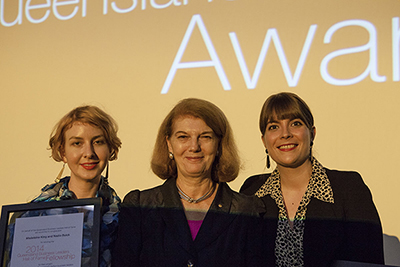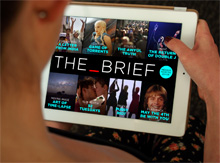Having a winning product, an impressive company website or thousands of fans on Facebook are not enough for long-term success, according to Iggy Pintado - who really ought to know.

Iggy Pintado
Mr Pintado is the director of marketing, sustainability and innovation for UXC Connect - and he is also the chairman and a speaker at the upcoming Marcus Evans CMO Summit 2011 in Queensland, September 26-28.
At the CMO Summit, Mr Pintado will share a wide range of experiences and pathways to success. In this Acumen preview he shares "the four Ps" of online networking and discusses marketing and brand loyalty:
Q: What is the best way of conveying a marketing or product message across in a world where consumers are bombarded with products?
Iggy Pintado: It is not only the content that is important, but the ‘context'. You have to make sure you deliver the message in an appropriate way, when the target market is ready to receive the message and to consider the product. That is the most effective way of communicating with people. You need to be there when they are ready to buy and be present wherever they are, so that they can find you easily. Having a website is no longer enough. You need to have a presence where they choose to be. In the online world, that is on social media platforms such as Facebook, LinkedIn and Twitter. Marketers can take advantage of social media by making absolutely sure that they are there for the audience.
Q: Is it more than just about having a presence on social media and thousands of fans?
Mr Pintado: Of course. You cannot just create a social network because everyone else is doing so. Here is where the four Ps of online networking comes in: purpose, profile, participation and persistence. You must have a purpose and decide what you want out of a social media presence - fans, connections or a community of customers - to be able to measure returns. Take time to ensure your profile is compelling. If you know your target market, you will know what interests them.
Participation is critical in online networks; you cannot just post or broadcast, but need to interact, observe, listen and converse. This is different to how marketing used to work in the past; it is now a two-way interaction. The fourth P, persistence, is as time dependent as building a brand or launching a product. You need to build your presence, community, followers and fans, and once they get used to interacting with you, that is when it will begin to pay off. Many companies have generated great returns from their social media presence.
Q: What strategies for creating brand loyalty would you recommend?
Mr Pintado: I recommend another acronym for creating brand loyalty: PLAN. This stands for personalise, listen, activate and nurture. You do not want just another follower, so you have to personalise the customer experience, address them by their right name and understand where they are coming from. The days of generic mail with ‘Dear Sir/Madam' are over. If you are personal with people, they will be personal back, which will generate brand loyalty.
Listening is a critical part of the social media conversation. When people are ready to buy or ask questions, you must be listening and be ready to respond. Thirdly, when you have a product launch or a campaign to run, get your fans involved. The strength of the community is when you actually ask them to participate. Lastly, nurture, staying in touch on a regular basis. Like any relationship, this takes time. You have to personalise, listen, activate and nurture in order to have a long-term relationship with people.
Q: What is your outlook for the future?
Mr Pintado: Video is going to be an incredibly powerful medium for getting a marketing message across sharper, quicker and more effectively. Mobile marketing and location based marketing will also become increasingly important. If you know where people are at a given point in time, you can serve them with more specialised offers.
The one constant in this world is that things are changing all the time. With technologies constantly evolving and different ways of using information, marketers need to make sure they keep their finger on the pulse of what is going on with the target market.
CMO Summit 2011
This unique forum will take place at the Sheraton Mirage Resort and Spa, Queensland, Australia, September 26 - 28, 2011. Offering much more than any conference, exhibition or trade show, this exclusive meeting will bring together esteemed industry thought leaders and solution providers to a highly focused and interactive networking event. The summit includes presentations on social brands, engaging consumers, brand differentiation and management.
This email address is being protected from spambots. You need JavaScript enabled to view it. This e-mail address is being protected from spam bots, you need JavaScript enabled to view it
http://www.cmoanzsummit.com/
ends
 EXTRA: QUT Creative Enterprise Australia (CEA) has opened The Coterie, a flexible work space in Brisbane where creative professionals and entrepreneurs can collaborate.
EXTRA: QUT Creative Enterprise Australia (CEA) has opened The Coterie, a flexible work space in Brisbane where creative professionals and entrepreneurs can collaborate.
 How to resolve AdBlock issue?
How to resolve AdBlock issue? 

 TOURISM Australia and New Zealand's national carrier Air New Zealand have signed a memorandum of understanding (MoU) aiming to see more than A$6 million invested in joint marketing activity over a three year period, to promote tourism to Australia in key overseas markets. The agreement may also help develop increasing numbers of special seasonal services, similar to the Auckland-Sunshine Coast route.
TOURISM Australia and New Zealand's national carrier Air New Zealand have signed a memorandum of understanding (MoU) aiming to see more than A$6 million invested in joint marketing activity over a three year period, to promote tourism to Australia in key overseas markets. The agreement may also help develop increasing numbers of special seasonal services, similar to the Auckland-Sunshine Coast route. 

